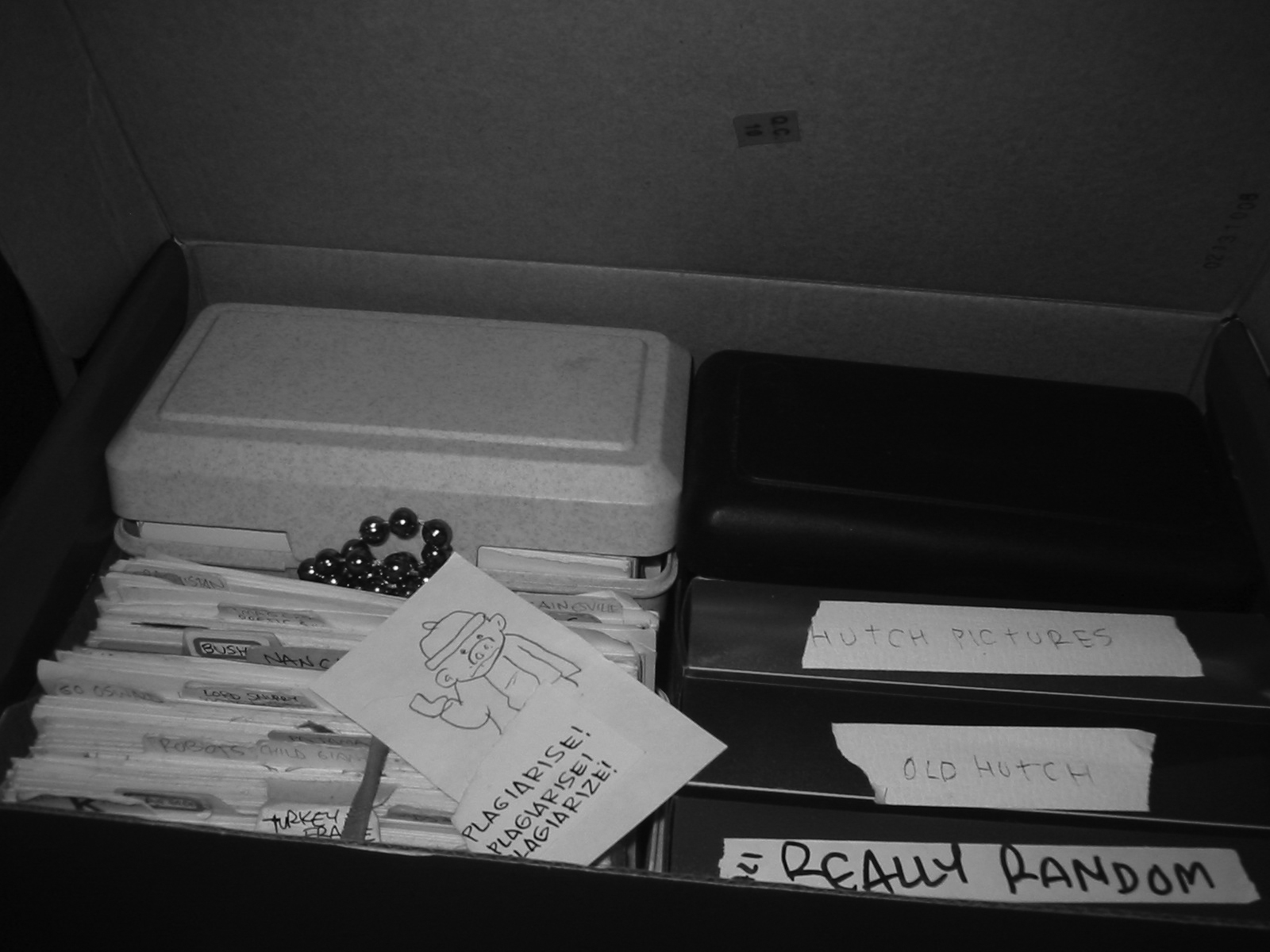Oblique Strategies for Comics
 Culling old notebooks and card-bins and trying to organize long list of strategies and inspiring instructions.
This is from past 5 or so years. Hoping typing these up will help sweep away some cobwebs.
Culling old notebooks and card-bins and trying to organize long list of strategies and inspiring instructions.
This is from past 5 or so years. Hoping typing these up will help sweep away some cobwebs.
Add-ons welcome, please comment.
Oblique Comix Strategies
- A large block of text
- Summarize the most important part
- Narrated by a third party who we see
- Why so little suspense?
- Foreigners, their language(s)
- Blank spaces, blank panels
- Duplicate panels
- Give character what she wants but make her work for it
- Work as someone who doesn't love ( ).
- Description, description, description. But it falls away under too much scrutiny.
- Announce the inspiration
- The way something feels
- Make a metaphor you don't understand
- Hide the inspiration
- Draw from a common well
- The first folk tale that comes to mind
- What is the silent gesticulating person talking about?
- The (character's) physical limitations make for a bizarre finale
- Silent visual metaphor
- Someone else's visual POV
- Action described
- Something odd, later contextualized
- Everything is off panel
- Why show it?
- Who knows but isn't telling?
- Announce the climax early on
- What can you censor?
- Character emulates the stories he loves
- Incantation
- Chorus, backing vocals
- Paranoid (Beat It, Billy Jean)
- After Tezuka: maze of confusion
- Something ephemeral
- Jokeless / Pointless
- Comic like Joe Frank: different monologues from different people
- Two faces in profile
- Parts of the speaker or listener
- Symbolic imagination of protagonist or listener
- Admit to a weakness
- Run the time out before the ending
- Add a surprise - introduce a new event
- Too many people or things
- Totally alone in the panel
- Something transferred or exchanged
- Mood, place, light
- Twice as nice
- A spotlight
- Verse chorus verse chorus
- What it's like to be dead (from Calvino)
- Entirely the social sheen (from Calvino)
- Nonsense syllables
- Show the rhythm
- It's about pictures: (comics, film, photography, etc.)
- Lord of the flies
- Emo BG
- Things are not what they seem
- Off the mark (from last panel)
- 1st person stream of consciousness
- Break chronology
- The forces -not us- are pushing us together or pulling us apart. (mountain goats)
- 2nd person narration
- Steal from ...
- Sound with no sound
- The text comes from a face in an ad, a t-shirt, etc.
- Simply state what you need (I just need to see you.)
- Distorted anatomy
- Highly subjective: white on black, fractured, etc.
- It has already been written
- FATE: dealing the cards from the bottom.
- Unreliable first person narrator. unreliable 3rd person narrator.
- Vertical panels. slivers.
- Unfinished drawings
- Phone call. black vortex (from Tezuka)
- Unglued
- More action than you can handle
- More glue
- Three silent pictures, a barrage of words.
- Slow down the drum track
- Absolute objectivity
- Parody your favorite thing
- Exert yourself physically before tackling the problem
- Gray out the main character
- What would the anti-you do?
- Viewer and viewed in same panel
- Balloons you can see through
- Pornography: expected situations, expected responses
- Words from the other side
- Rundown of a series of characters. the last one is profound, different
- Book within a book
- Powerful character whom everyone orbits
- Side characters hate the main. He is in opposition to the side characters
- Vast summaries: "he made it to morocco and found himself at..."
- Narrator is an interloper. Watches and never participates
- The story is description, before the human elements arrive.
- Shift the timing/ out of phase.
